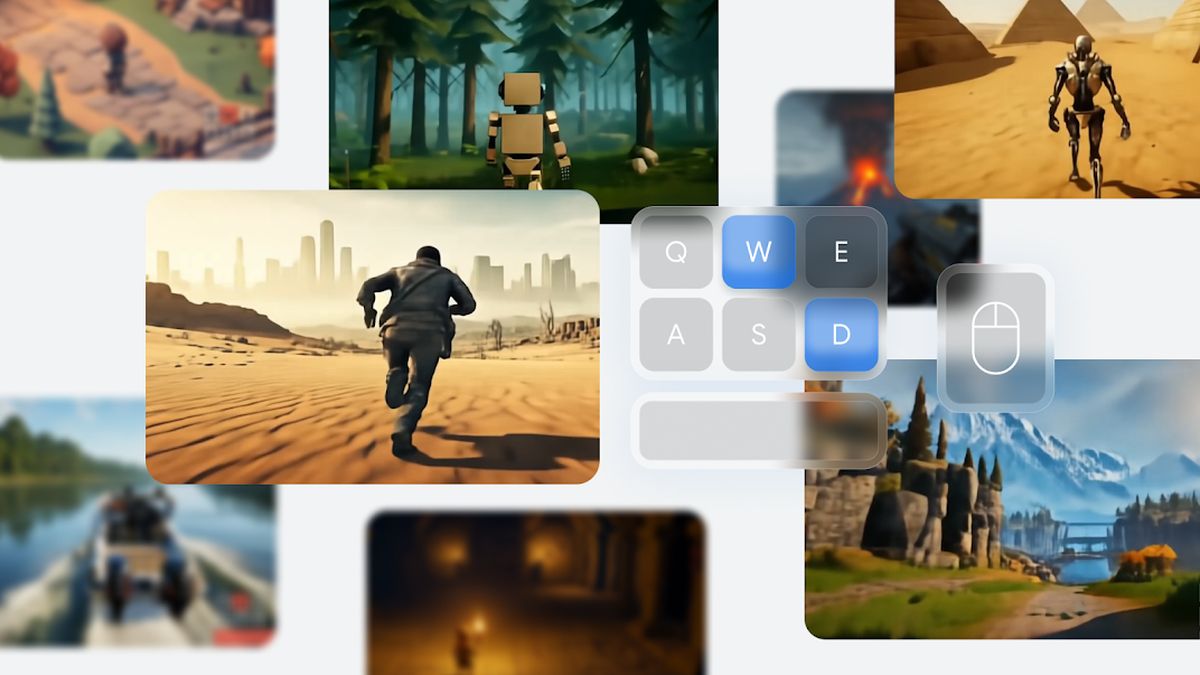Genie 2 can build playable games from a sentence

DeepMind has introduced Genie 2, an advanced AI model capable of generating interactive 3D worlds from simple text descriptions and images. Announced on December 4, 2024, the successor to Genie 1 creates diverse virtual environments, allowing users to engage dynamically through keyboard and mouse controls, simulating actions like jumping and swimming. It is trained on various videos and can model interactions, physics, and NPC behavior.
DeepMind launches Genie 2, a revolutionary AI for 3D worldsGenie 2 has the ability to visualize a vast range of 3D scenes, offering functionalities similar to AAA video games. By processing prompts, the model can produce consistent environments, including first-person and isometric perspectives that last between 10 to 20 seconds, with some extending up to a minute. DeepMind’s claims assert that the model remembers parts of a scene beyond immediate view, accurately rendering them upon reappearance. This contrasts with existing models like Decart’s Minecraft simulator, which often struggle with consistency and resolution.
These leaked Battlemage Intel GPUs are gaming beasts
The foundational element of Genie 2 involves processing a reference image paired with a text prompt, streamlining the generation of highly interactive environments. For instance, a prompt like “A cute humanoid robot in the woods” allows the model to create a corresponding scene. The inclusion of complex interactions, such as enabling players to pop balloons or navigate environments, showcases its robust physics engine. Despite such capabilities, concerns arise regarding the model’s interpretation of input, particularly whether it inadvertently replicates copyrighted game elements due to a lack of detail regarding training data sources.
The intellectual property implications stemming from Genie 2’s training data raise significant questions. DeepMind benefits from Google’s extensive access to YouTube, possibly utilizing video content for model training. This access leads to speculation about the generation of unlicensed reproductions of observed games, which may become a matter for legal examination. As the AI model blurs the lines of originality, the concern of unauthorized replication looms large.
Findings from a WIRED investigation highlighted that major companies, including Activision Blizzard, are employing AI technologies to streamline processes, potentially leading to job losses. The introduction of Genie 2 may further complicate the landscape, where AI tools accelerate development while challenging traditional job roles.
DeepMind emphasizes Genie 2’s role in developing diverse evaluation tasks for AI agents. While the model’s computing requirements and commercialization prospects remain undisclosed, ongoing advancements point to an evolving relationship between AI and game design. Various reports indicate an influx of investment into world model technologies, signifying a pivotal shift in both AI research and interactive gaming experiences. This trend resonates with a growing fascination for AI’s potential to reshape creative industries.
DeepMind’s focused hiring efforts highlight the commitment to pioneering developments. Their strategic recruitment of talent from other leading AI firms reinforces their intent to remain at the forefront of generative AI technologies.
Featured image and video credits: Google DeepMind
